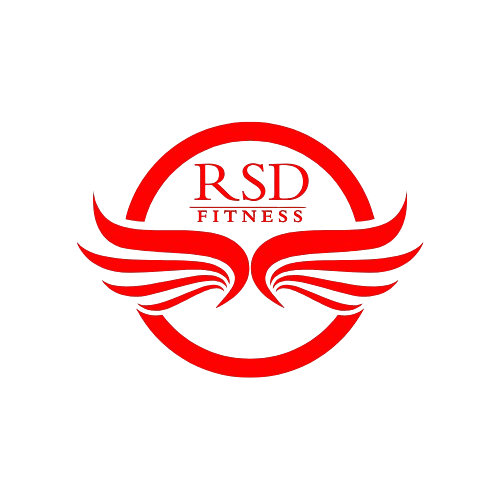

Introduction
Fitness challenges and competitions have become a popular way for people to push their limits, stay motivated, and achieve their fitness goals. Whether you are just starting your fitness journey or are a seasoned athlete, participating in challenges or competitions can provide structure, accountability, and a sense of community. This guide will explore different types of fitness challenges and competitions, the benefits of participating, how to prepare, and tips for staying motivated throughout the process.
1. What Are Fitness Challenges and Competitions?
Fitness challenges and competitions are structured activities designed to test and improve physical fitness over a set period. These challenges can be individual or team-based, short-term or long-term, and vary in difficulty depending on the participants’ fitness levels. Competitions are often more formal, with winners determined by performance metrics such as time, distance, weight lifted, or repetitions completed.
Challenges typically focus on achieving a specific goal, such as completing a certain number of workouts in a month, hitting a target bodyweight, or improving strength. Competitions, on the other hand, often involve direct competition with others in specific events such as running, powerlifting, bodybuilding, or CrossFit.

2. Types of Fitness Challenges and Competitions
A. Personal Fitness Challenges Personal fitness challenges are individualized programs that help you achieve your specific fitness goals. They might include a 30-day push-up challenge, a daily step goal, or a month-long challenge to attend a certain number of workout classes. Personal challenges are great for people who prefer to compete with themselves and want to develop healthier habits or work toward a particular goal.
B. Group Challenges Group challenges involve several people working toward a common goal. These might be organized through gyms, online communities, or fitness clubs. Group challenges create accountability because participants share their progress, support one another, and strive to hit collective goals. Examples include a weight loss challenge at work or a fitness challenge organized by an online fitness community.
C. Virtual Challenges With the rise of technology, virtual challenges have gained popularity. These challenges allow participants from all over the world to compete or collaborate toward a fitness goal. Virtual challenges often come with online tracking tools, leaderboards, and social media engagement to create a sense of community. Popular virtual challenges include running a certain distance over a month, cycling challenges, or virtual races.
D. Competitive Fitness Events Competitive events are formal competitions where participants are measured against each other in various physical activities. These include powerlifting meets, CrossFit competitions, triathlons, bodybuilding contests, and obstacle course races like Spartan or Tough Mudder. Competitors are often divided into categories by age, weight, or experience level, and awards are given to the top performers.

3. Benefits of Participating in Fitness Challenges and Competitions
A. Motivation and Accountability One of the greatest benefits of participating in fitness challenges or competitions is the boost in motivation. Knowing that you have a set goal or event coming up can inspire you to stay consistent with your workouts and push harder. Additionally, the sense of accountability created by a challenge—whether personal or group-based—helps keep you on track.
B. Structure and Goal Setting Challenges and competitions provide a structured approach to fitness. Rather than randomly working out, you’ll have specific milestones and goals to aim for, which can help improve your progress. Whether you’re working on increasing strength, endurance, or weight loss, the structure of a challenge helps break your long-term goals into manageable steps.
C. Sense of Community Many fitness challenges and competitions involve a community of like-minded individuals. The camaraderie, support, and friendly competition fostered in these environments can make your fitness journey more enjoyable. Whether through in-person interactions or virtual platforms, sharing experiences with others adds an important social dimension to fitness.
D. Physical and Mental Benefits The physical benefits of participating in fitness challenges and competitions are obvious: improved strength, endurance, flexibility, and overall health. However, the mental benefits are equally important. Overcoming challenges can build confidence, improve discipline, reduce stress, and create a positive mindset. Competitions, in particular, foster mental resilience by pushing you to perform under pressure.
E. Recognition and Rewards Competitions often come with prizes or recognition, which can be a great incentive. Even in non-competitive challenges, reaching the goal can bring a sense of accomplishment and pride. These rewards—whether medals, trophies, or personal satisfaction—reinforce the hard work you’ve put in.

4. Preparing for a Fitness Challenge or Competition
A. Choose the Right Challenge The first step is choosing a challenge or competition that aligns with your fitness level and goals. If you’re a beginner, start with something achievable like a 30-day fitness challenge. If you’re more experienced, consider entering a formal competition like a 5K race or a powerlifting meet. Be realistic about what you can handle physically and mentally.
B. Plan Your Training Once you’ve chosen your challenge, plan a training schedule. Break down the time leading up to the event into phases: building a base of fitness, gradually increasing intensity, and tapering before the event. Include a mix of strength training, cardio, and recovery sessions to ensure a well-rounded program. You may also consider working with a coach or joining a training group to stay on track.
C. Focus on Nutrition Proper nutrition plays a key role in preparing for any challenge or competition. Focus on a balanced diet rich in whole foods, including lean proteins, complex carbohydrates, healthy fats, and plenty of fruits and vegetables. Depending on your challenge, you may need to tailor your nutrition to support muscle growth, endurance, or fat loss.
D. Recovery and Injury Prevention Recovery is just as important as training. Make sure to prioritize sleep, hydration, and rest days. Use tools like foam rollers, massage guns, and stretching to keep your muscles loose and prevent injuries. If you do experience pain or discomfort, consult with a healthcare professional to avoid aggravating the issue.

5. Staying Motivated During the Challenge
A. Set Small, Achievable Goals Rather than focusing only on the end goal, set smaller milestones along the way. These mini-goals will give you something to celebrate throughout the challenge and keep you motivated to continue.
B. Track Your Progress Tracking your progress is a powerful motivator. Keep a journal or use an app to record your workouts, nutrition, and how you feel each day. Seeing improvements over time—whether it’s faster running times or heavier weights—will fuel your determination.
C. Reward Yourself Give yourself small rewards for hitting milestones. This could be treating yourself to a new piece of gym wear, a healthy meal out, or a rest day doing something you enjoy. These rewards will help reinforce your efforts and keep you motivated.
6. Participating in Competitions: The Big Day
When competition day arrives, focus on staying calm and confident. Trust in the training you’ve done and give your best effort. Make sure to follow your pre-competition routines, from your warm-up to nutrition. Competitions are not just about winning; they are an opportunity to measure your progress, celebrate your hard work, and learn for the future.
Conclusion
Fitness challenges and competitions offer incredible opportunities for growth, both physically and mentally. They can push you out of your comfort zone, help you stay motivated, and bring a sense of accomplishment. Whether you’re aiming to lose weight, gain strength, or achieve a personal best, there’s a challenge or competition out there for you. So, set your goals, take on the challenge, and enjoy the process of becoming a stronger, healthier version of yourself!

